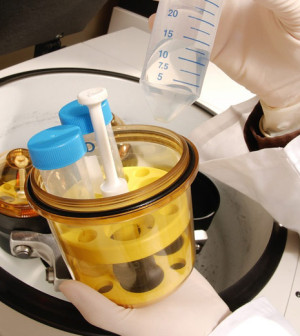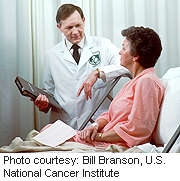- 8 Ways to Increase Dopamine Naturally
- 7 Best Breads for Maintaining Stable Blood Sugar
- Gelatin vs. Collagen: Which is Best for Skin, Nails, and Joints?
- The Long-Term Effects of Daily Turmeric Supplements on Liver Health
- Could Your Grocery Store Meat Be Causing Recurring UTIs?
- Are You Making This Expensive Thermostat Error This Winter?
- Recognizing the Signs of Hypothyroidism
- 10 Strategies to Overcome Insomnia
- Could Artificial Sweeteners Be Aging the Brain Faster?
- Techniques for Soothing Your Nervous System
Many Women Receive Unnecessary Pap Tests, Study Finds


Doctors in the United States overuse Pap tests for cervical cancer screening in some groups of women, according to a new study.
Researchers found that women who have had their sex organs removed and others considered too old to worry about cervical cancer are among those getting tested.
“Almost two-thirds of women who have had hysterectomies reported having recent Pap tests,” study co-author Deanna Kepka, an assistant professor in the College of Nursing at the University of Utah, said in a university news release.
“Half of women over 65 who have no cervical cancer history also reported a recent Pap test,” said Kepka, who also is an investigator at the Huntsman Cancer Institute in Salt Lake City. “This represents 14 million women in the United States receiving an unnecessary procedure.”
A Pap test involves scraping cells from the surface of the cervix and examining them for abnormalities under a microscope.
Because older women have a very small risk of developing slow-growing cervical cancer, Pap tests do not benefit women over age 65 who have no history of cervical cancer or pre-cancerous conditions, Kepka said.
She also said women who have had hysterectomies do not benefit from a Pap test because nearly all of them no longer have a cervix, which is the specific target of this type of screening.
For their study, Kepka and her colleagues examined data from the 2010 National Health Interview Survey. Their findings were published online Nov. 25 in the journal JAMA Internal Medicine.
“We knew there would be overuse of Pap tests, because the few studies of cervical cancer screening showed overuse 10 years ago,” Kepka said. “But we were shocked to see so little change over the past 10 years.”
“We’re hoping to see better use of the tests over the next decade as changes in the health care infrastructure take place,” she said. Electronic medical records, physician reminder systems and new strategies to improve the quality of care may promote guideline-consistent practices among clinicians, she said.
More information
The U.S. National Cancer Institute has more about cervical cancer screening.
Source: HealthDay
Copyright © 2026 HealthDay. All rights reserved.










